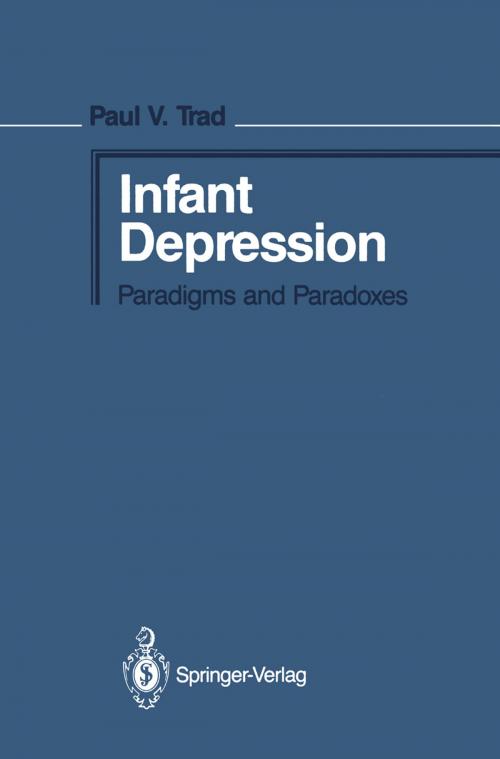Infant Depression
Paradigms and Paradoxes
Nonfiction, Health & Well Being, Medical, Specialties, Pediatrics, Psychiatry| Author: | Paul V. Trad | ISBN: | 9781461386636 |
| Publisher: | Springer New York | Publication: | December 6, 2012 |
| Imprint: | Springer | Language: | English |
| Author: | Paul V. Trad |
| ISBN: | 9781461386636 |
| Publisher: | Springer New York |
| Publication: | December 6, 2012 |
| Imprint: | Springer |
| Language: | English |
For me, the word "infant" has always had a strange and compelling fascination. This book, in essence, represents the first step of what I hope will be a long and fruitful journey into the mysteries of the infant psyche, with special emphasis on the phenomenon of early-life depressive symptomatology. From the outset of my medical training, I was particularly attracted to the field of psychiatry. As a resident exposed to adult patients in a psychiatric ward, I can vividly recall, even these many years later, the deep sense of poignancy and distress while in the presence of minds gone awry. It is my belief that psy chiatry, more than any other branch of medicine, presents the physician with the ultimate paradox-the elusive diagnosis. By this I mean that while the symp tomatology of psychiatry may be classified and analyzed, while diagnoses, prog noses, and treatment schedules can be devised, within psychiatry the unique configuration of each individual patient emerges with a clarity and distinction unparalleled in any other medical field. Before any psychiatric diagnosis can be formulated, the therapist must first delve deeply into the ultimate singularity of the patient. As a consequence, psychiatry is, in the final analysis, concerned with the dignity of each patient, and the psychiatrist is continually challenged to explore the most formidable and elaborate aspect of each person-the human mind. That said, I need to express the reasons for my dedication to child psychiatry.
For me, the word "infant" has always had a strange and compelling fascination. This book, in essence, represents the first step of what I hope will be a long and fruitful journey into the mysteries of the infant psyche, with special emphasis on the phenomenon of early-life depressive symptomatology. From the outset of my medical training, I was particularly attracted to the field of psychiatry. As a resident exposed to adult patients in a psychiatric ward, I can vividly recall, even these many years later, the deep sense of poignancy and distress while in the presence of minds gone awry. It is my belief that psy chiatry, more than any other branch of medicine, presents the physician with the ultimate paradox-the elusive diagnosis. By this I mean that while the symp tomatology of psychiatry may be classified and analyzed, while diagnoses, prog noses, and treatment schedules can be devised, within psychiatry the unique configuration of each individual patient emerges with a clarity and distinction unparalleled in any other medical field. Before any psychiatric diagnosis can be formulated, the therapist must first delve deeply into the ultimate singularity of the patient. As a consequence, psychiatry is, in the final analysis, concerned with the dignity of each patient, and the psychiatrist is continually challenged to explore the most formidable and elaborate aspect of each person-the human mind. That said, I need to express the reasons for my dedication to child psychiatry.















